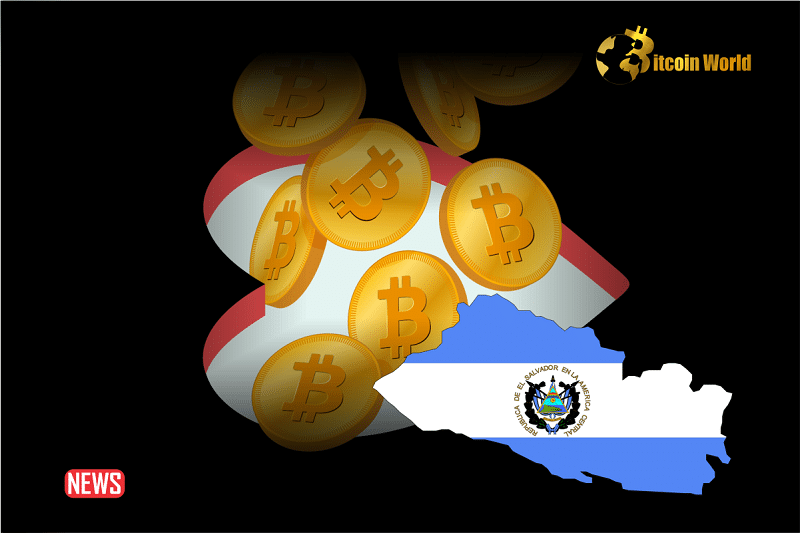Imagine getting a passport not through years of residency, but through a Bitcoin donation. Sounds like science fiction? Well, El Salvador just turned this into reality! Under the leadership of President Nayib Bukele, known for his pro-Bitcoin stance, El Salvador’s Congress has greenlit a law that could reshape how nations approach citizenship and cryptocurrency. Let’s dive into this fascinating development and explore what it means for you, for El Salvador, and for the future of digital currency.
Bitcoin for a Passport? El Salvador’s Bold Move
El Salvador, the first country to adopt Bitcoin as legal tender, is doubling down on its crypto commitment. The latest move? Offering expedited citizenship to foreign investors who donate Bitcoin to government-backed development projects. Think of it as a fast track to becoming a Salvadoran citizen, bypassing the usual bureaucratic hurdles. Here’s the gist:
- Quick Citizenship: Donate Bitcoin, potentially get citizenship faster than traditional routes.
- Bypassing Red Tape: Skip the standard naturalization process, which usually requires years of residency.
- Attracting Global Support: El Salvador aims to draw in ‘altruistic foreigners’ willing to invest in the nation’s growth through crypto.
- Bukele’s Backing: President Bukele’s New Ideas party championed this reform, highlighting its importance for national development.
The Million-Dollar Question: How Much Bitcoin Do You Need?
Here’s where things get interesting – and a bit vague. The law doesn’t specify a minimum Bitcoin donation amount. Yes, you read that right. It’s all about supporting “vital interest” projects and contributing to El Salvador’s economic, social, and cultural advancement. This ambiguity leaves room for speculation and raises several questions:
- No Fixed Price Tag: Unlike some ‘golden visa’ programs with clear investment thresholds, this Bitcoin citizenship path is undefined in terms of crypto value.
- “Altruistic” Contributions: The law emphasizes donations that are ‘altruistic,’ suggesting a focus on genuine support rather than just a transaction.
- Potential Negotiation: Could the donation amount be negotiated on a case-by-case basis? It remains to be seen how this will play out in practice.
The standard naturalization process in El Salvador requires a significant waiting period – five years for non-Spanish speakers, or two years if married to a Salvadoran citizen. This new law offers a significant shortcut for those willing to contribute Bitcoin.
Challenges and Crypto Realities in El Salvador
El Salvador’s Bitcoin journey hasn’t been without its bumps. While the country made headlines for adopting Bitcoin as legal tender, real-world usage has been slower than anticipated. There are also broader economic factors to consider:
- Slow Bitcoin Adoption: Despite the legal tender status, widespread Bitcoin usage within El Salvador is still developing.
- IMF Concerns: The International Monetary Fund has voiced concerns about the risks associated with El Salvador’s Bitcoin embrace, potentially complicating financial support negotiations.
- Economic Pressures: El Salvador is navigating economic challenges, and the success of this Bitcoin citizenship program could be crucial for attracting foreign capital.
President Bukele’s push for a digital currency-centric economy is happening alongside his controversial bid for re-election. Despite constitutional questions surrounding consecutive terms, El Salvador’s top court has cleared the way for his candidacy, drawing international criticism.
Global Watch and Economic Implications
The world is watching El Salvador’s experiment closely. This Bitcoin citizenship law is unprecedented and raises many questions about the intersection of cryptocurrency, national governance, and economic strategy. Here’s what’s on the international community’s mind:
- International Scrutiny: El Salvador’s unconventional approach is under the microscope, especially given the IMF relationship.
- Economic Viability: Can Bitcoin donations significantly boost El Salvador’s economy and offset risks?
- Precedent Setting: Will other nations consider similar crypto-citizenship initiatives?
President Bukele’s re-election bid adds another layer of complexity. The February 4th election will be a critical moment for El Salvador and its digital currency ambitions.
Is Bitcoin Citizenship the Future?
El Salvador’s Bitcoin citizenship law is a bold, unconventional move that’s generating buzz and debate worldwide. It’s a fascinating case study in how cryptocurrency can be integrated into national policy, but also a venture into uncharted territory. Whether it becomes a successful model or a cautionary tale remains to be seen. The lack of a defined minimum donation, coupled with international economic pressures, adds significant uncertainty. One thing is clear: El Salvador is pushing boundaries and forcing us to rethink traditional notions of citizenship in the digital age. Keep an eye on El Salvador – this crypto experiment is far from over, and its outcome could have ripple effects across the globe.
Disclaimer: The information provided is not trading advice, Bitcoinworld.co.in holds no liability for any investments made based on the information provided on this page. We strongly recommend independent research and/or consultation with a qualified professional before making any investment decisions.


